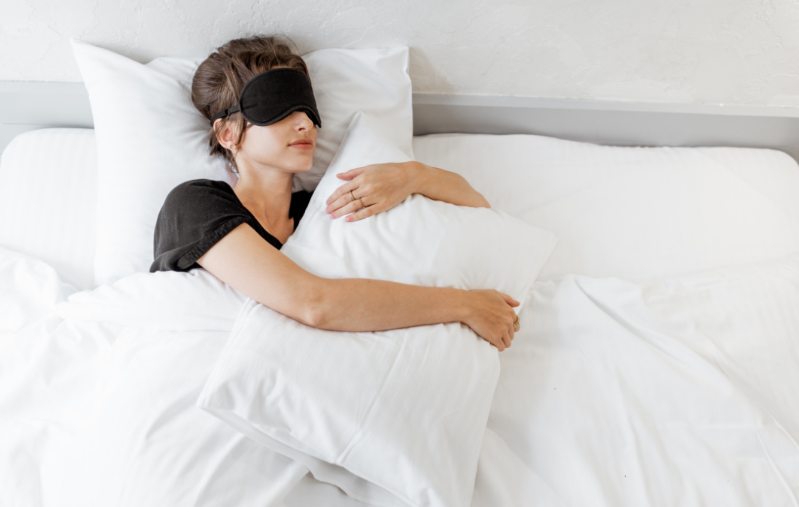Mastering Sleep Hygiene: Key Strategies for Busy Professionals
In the relentless pace of today’s work environments, sleep is often the first casualty of a busy schedule. However, the link between adequate sleep and peak performance is undeniable, with a clear correlation to improved productivity, decision-making, and emotional stability. For busy professionals looking to optimize their productivity, prioritizing sleep hygiene is essential. Here are some practical strategies to help you improve your sleep hygiene and enhance your workplace success.
Understand the Importance of Sleep
Before diving into the strategies, it’s crucial to understand why sleep is important. Sleep affects cognitive processes such as problem-solving skills, memory, concentration, and critical thinking. Lack of sleep can result in decreased efficiency and increased errors at work. Recognizing the immense benefits of sleep can motivate you to improve your sleep habits.
Establish a Regular Sleep Schedule
Consistency is key in sleep hygiene. Try to go to bed and wake up at the same time every day, even on weekends. This consistency reinforces your body’s sleep-wake cycle and can help you fall asleep more quickly and wake up more refreshed.
Create a Pre-Sleep Routine
A relaxing pre-sleep routine helps signal to your body that it’s time to wind down. Consider activities that might help you relax, such as reading a book, taking a warm bath, meditating, or practicing gentle yoga. Try to perform these activities in dim lighting to help encourage the production of melatonin, the hormone responsible for sleep.
Optimize Your Sleep Environment
The environment in which you sleep can greatly impact the quality of your sleep. Ensure your bedroom is conducive to sleep: keep it cool, quiet, and dark. Invest in a good quality mattress and pillows to support a comfortable night’s sleep. Consider using blackout curtains, eye masks, and white noise machines if you are particularly sensitive to light and noise.
Limit Screen Time Before Bed
Exposure to light from screens on smartphones, computers, and televisions can interfere with your circadian rhythm. Try to avoid these screens for at least an hour before bed. Instead, engage in non-screen activities that help you relax.
Be Mindful of Food and Drink
What you consume can affect how well you sleep. Avoid large meals, caffeine, and alcohol before bedtime, as they can disrupt sleep. If you need a snack before bed, opt for something light and healthy.
Exercise Regularly, But Not Before Bed
Regular exercise can help you fall asleep faster and enjoy deeper sleep. However, exercising immediately before bedtime can have the opposite effect. Try to finish any vigorous exercise at least three hours before you plan to retire for the night.
Manage Stress
Stress and worry can make it difficult to sleep well. Consider using stress management techniques like deep breathing, visualization, or progressive muscle relaxation. Keeping a "worry book" next to your bed can help you jot down your thoughts and clear your mind before trying to sleep.
Seek Professional Help If Needed
If you've implemented these strategies and continue to struggle with sleep, consulting a mental health care professional might be beneficial. Mental health professionals can help treat any underlying psychological conditions that may be affecting your sleep, such as anxiety, depression, or stress-related disorders. They can offer targeted treatments such as cognitive-behavioral therapy, mindfulness techniques, relaxation training, and other therapeutic interventions tailored to improve sleep hygiene and overall mental wellness.
By prioritizing good sleep hygiene, you not only enhance your health but also set the stage for sustained professional success. Implementing these strategies can lead to remarkable improvements in your productivity, mental sharpness, and overall well-being.
At The Mental Game Clinic, our team of psychologists, social workers, and psychotherapists work with high performing leaders, helping them to optimize their wellbeing and performance. Schedule a complimentary consultation call to learn more about how we can help.
References
Hale, L., Kirschen, G. W., LeBourgeois, M. K., Gradisar, M., Garrison, M. M., Montgomery-Downs, H., Kirschen, H., McHale, S. M., Chang, A. M., & Buxton, O. M. (2018). Youth screen media habits and sleep: Sleep-friendly screen behavior recommendations for clinicians, educators, and parents. Child and Adolescent Psychiatric Clinics of North America, 27(2), 229-245. https://doi.org/10.1016/j.chc.2017.11.014
National Sleep Foundation. (n.d.). Good sleep and job performance. Retrieved from https://www.sleepfoundation.org/sleep-hygiene/good-sleep-and-job-performance
Washington University in St. Louis, Human Resources. (n.d.). Creating a sleep routine: 6 steps to better sleep. Retrieved from https://hr.wustl.edu/creating-a-sleep-routine-6-steps-to-better-sleep/
